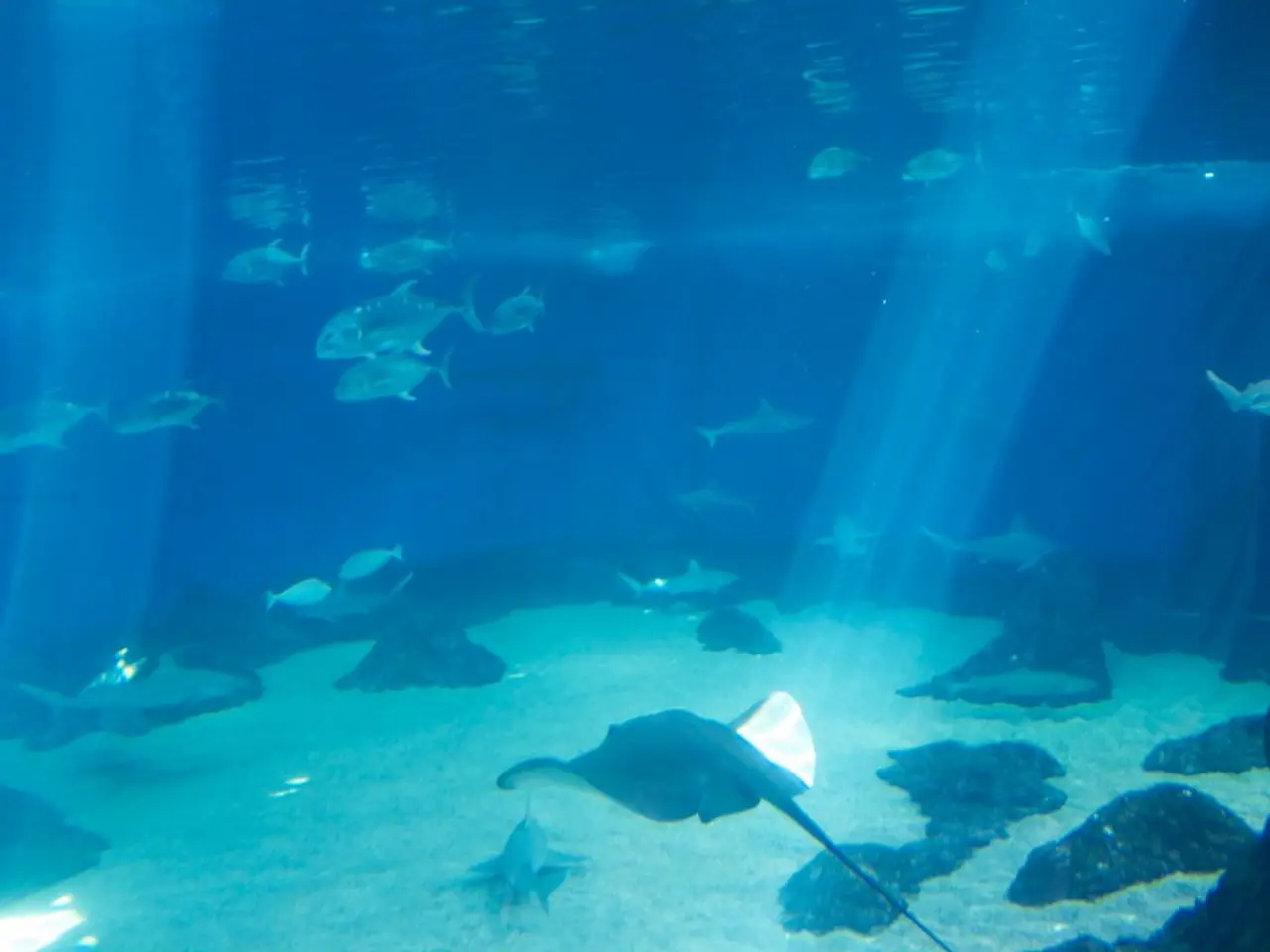Marauding Species Devoured Over 10 Million Fish in a Short Span of Time
In the chilly waters of the Barents Sea off the coast of Norway, a significant event unfolded in 2024. A research team, comprising Norwegian oceanographers and researchers from MIT, documented an unprecedented feeding frenzy involving apex predators, marking one of the most significant recent examples of large-scale ocean predation with far-reaching implications for marine ecosystems.
The findings of this remarkable discovery were published in October 2024 in the prestigious journal, Nature Communications Biology. The research paper revealed that Atlantic cod consumed approximately 10.6 million anchovy-sized capelin fish in just four hours, a feeding spree that surpasses the largest documented predation events in Earth's history.
This event underscores the potential ramifications of anthropogenic climate change for marine ecosystems. The intense feeding activity, likely driven by changing ocean conditions and prey distribution, demonstrates how shifts in marine predator-prey interactions, possibly fueled by climate changes, can lead to large-scale ecosystem impacts.
The research paper also highlighted the long evolutionary history of large ocean predators, such as the ancient radiodonts like Anomalocaris, which reached up to 38 cm in length and represented some of the earliest complex predation in Earth's oceans. This discovery reveals previously unknown complexities about how oceanic predators and prey interact on a large scale.
The discovery of this massive predation event in the Barents Sea echoes past ocean warming episodes, like the Pacific “Blob” marine heatwave (2014–2016), which severely disrupted ocean life across thousands of kilometers, affecting plankton to marine mammals. Such heatwaves can alter species distributions and predation patterns, paralleling impacts seen in the Barents Sea event.
The implications for marine ecosystems from such large-scale predation events are profound. They can lead to redistribution of prey species, altered prey population dynamics, potential disruption of established predator-prey balances, and indications of changing ocean conditions, such as warming and acidification, influencing species behavior, migration, and survival. These changes highlight the vulnerability of marine ecosystems to abrupt, large-scale environmental changes, with consequences for biodiversity and fisheries.
In summary, the 2024 Barents Sea predation event exemplifies a major predation occurrence with strong ecosystem implications, driven by environmental changes that mirror historical and recent oceanic phenomena. It emphasizes the sensitivity of marine ecosystems to climatic and ecological stressors shaping predator-prey dynamics on a large scale. This event provides a modern analog to ancient apex predation's role in ecosystem structure and highlights ongoing climate change as a key driver of such dramatic biological upheavals.
- The findings of the event suggests that changes in climate might influence the science of environmental-science and potentially impact health-and-wellness through alteration of marine ecosystems.
- The massive predation event in the Barents Sea is a modern example of complex biology, such as the ancient predation seen in early organisms like Anomalocaris, highlighting the importance of learning about fitness-and-exercise in various species.
- As technology advances, researchers can better understand and monitor climate-change effects on ocean life, as indicated by the documented feeding frenzy, which could potentially impact future fishing and exercise activities related to fitness-and-exercise.




